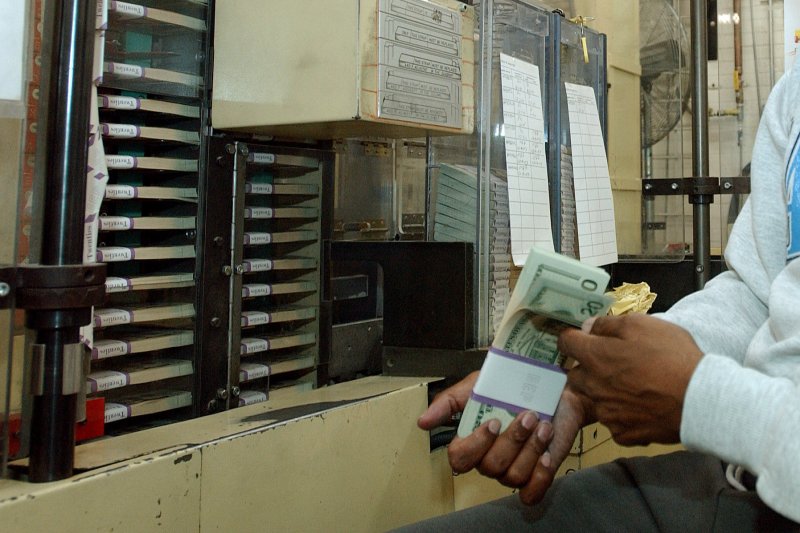Some global economies may need to make a long-term shift away from oil, a survey from the International Monetary Fund found. File photo by Roger L. Wollenberg/UPI |
License Photo
WASHINGTON, June 9 (UPI) -- Particularly in the Middle East and Central Asia, lessons from the slump in crude oil prices suggest a revenue overhaul may be needed, the IMF said.
A survey this week from the World Bank found the global economy may be slowing down. For countries that rely on imports, the weak market for crude oil may be providing stimulus, with commodity-importing economies on pace to expand by 5.8 percent in 2016. For the Middle East and North Africa, the World Bank said growth is expected at 2.9 percent, a 1.1 percent reduction from a January forecast.
"The downward revision comes as oil prices are expected to track lower for the year, at an average of $41 per barrel," the bank said.
A review from Martin Sommer, Juan Treviño, and Neil Hickey with the International Monetary Fund found the drop in crude oil prices since mid-2014 is dragging on the growth momentum for economies that rely heavily on fossil fuels for revenue.
"This applies particularly to countries of the Middle East and Central Asia, because these regions are home to 11 of the world's top 20 energy exporters," they said.
For exports, the IMF economists said budgets have moved from surplus to deficit and overall growth has slowed. Continuing on with a business-as-usual economic agenda may no longer work for most of the oil-based economies, they said.
In April, the IMF said the Iranian economy is expected to grow about 4 percent this year because of higher oil production and the lifting of sanctions, which should help lift the prospects for the region as a whole. The decline in crude oil prices for Saudi Arabia, meanwhile, could translate to a 1.2 percent increase in real gross domestic product, compared with 3.5 percent growth last year.
An economic agenda, dubbed Vision 2030, aims to boost Saudi Arabia's non-oil revenue, something the IMF said should help drive forward momentum. The IMF said the strategy should help diversify the Saudi economy and increase the role of a private sector governed traditionally by the monarchy.
The IMF economists said fiscal restraints on subsidies for oil and gas are just part of an overall effort to push regional economies beyond fossil fuels. The long-term process, they said, will be "difficult," though many regional policymakers are off to a good start.
"In the coming years, oil revenues will no longer be sufficient for governments to act as the main employer of their fast-growing young populations," they said. "Therefore, policymakers must find new ways to promote private sector development and help their economies diversify away from oil."















